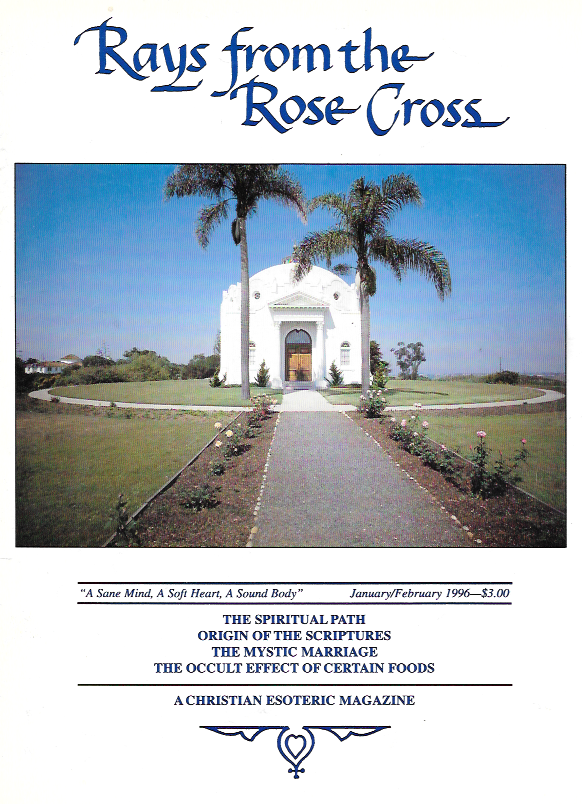
| rosanista.com | ||
| Simplified Scientific Christianity |

This Commandment, when mentioned in the Gospels, is always found in conjunction with the eleventh Commandment: "Thou shalt love the Lord thy God with all thy heart and with all thy soul and with all thy might." These two Commandments have a joint mission, just as do the two parts of the body which they represent — the ankles and the feet.
The ankles and feet are not in themselves necessary to the life of the body; neither is the virtue of love as expressed in the New Testament Commandments essential to the natural life of the body. The ankles and feet, however, are indispensable to the functions of the god-man; so, also, is the virtue of active love indispensable to the divine in man.
The work of ankles and feet depends entirely upon individual, conscious volition; it is not automatic. Neither is the virtue of love spontaneous and inborn; it is something set apart to be exercised with all our heart, soul, mind, and might. No one can teach a child to walk; it must walk by itself, falling as it learns. No one can teach us to love; this also is a self-taught virtue. We can encourage a child to walk and can encourage each other in learning and expressing love. Pisces is the sign of the feet. Pisces is also the sign of experience, as the result of which we learn to use and practice love on our neighbors. Pisces is the testing ground of the virtue of love — a virtue we accumulated in Aquarius.
Our worldliness, our affiliation with the present scientific, affluent age — our "rich young man" of the New Testament —presents us with a considerable test. Consider what the rich young man was up against: In spite of all his efforts, he believed he was not gaining eternal life. Christ Jesus said: Sell thy many riches; give all to the poor who yet have need of them and follow me for love. The young man, aghast, answered: You mean I must give up all? I must give up all my beautiful possessions and follow thee like a beggar. I must forget all I have learned from books and teachers and depend on words which God may or may not put on my lips in times of need? Do you really expect me to be fed by your words and be satisfied with the crumbs from your table when all my life I have known abundance? Do I have to leave the comfort and inspiration of those I love? Do I have to leave behind my full storehouses and know no more the fruits of my labors? Must I forget the peace of my harmonious life and take to the uncertainty of the open road? Must I forget that mine, too, is the voice of the master, respected and obeyed? Will I know no more the thrill of achievement or the strength of fearlessness in the presence of enemies? All this I must leave and follow thee for love? I cannot do it.
Too many of us today are still "rich young men," unwilling or unable to let go of the things of this world and follow Him, for love.
Perhaps the hardest test of love was given to Peter, whom Christ Jesus three times asked, "Lovest thou me?" Each time Peter answered in the affirmative, Christ Jesus admonished, "Feed my sheep." This means: Teach your brothers to love the Path, too; teach them that truth must be enveloped by the heart — that truth is love. Bring your neighbor to me that he might dwell in me, and I in him.
The kind of love that Christ Jesus taught is the spontaneous fulfilling of the law, because this quality of love stills the will and makes us long only to share. As we are told: "Bless them that curse you. Do good to them that despitefully use you." "Love one another, even as I have loved you."
In this Piscean Commandment, Christ Jesus asked us to love our neighbors — our fellow men — as He loved us, yet even this is little compared to what He did in ministering to us. When He sent out the 70 to preach the Gospel and heal the sick, He said: Take no purse or wallet, no shoes, nor change of raiment; salute no man. In other words, release all possessions — material, mental, personal, and emotional.
Christian victory is achieved when His love shines in our hearts and His power is made manifest through our deeds of service, for our neighbors.
— Rays from the Rose Cross Magazine, May, 1977, page 217-218.
|
Contemporary Mystic Christianity |
|
|
This web page has been edited and/or excerpted from reference material, has been modified from it's original version, and is in conformance with the web host's Members Terms & Conditions. This website is offered to the public by students of The Rosicrucian Teachings, and has no official affiliation with any organization. | Mobile Version | |
|